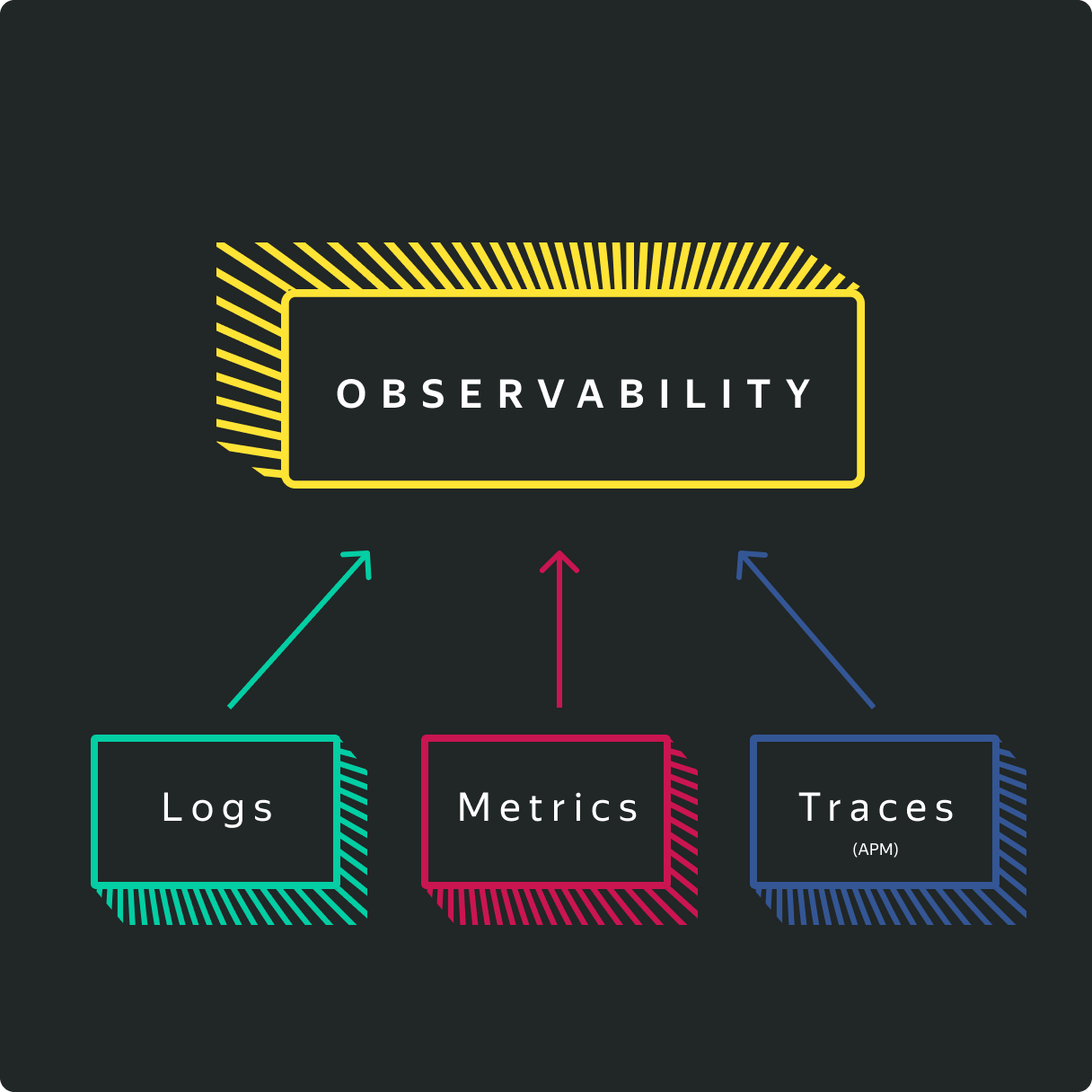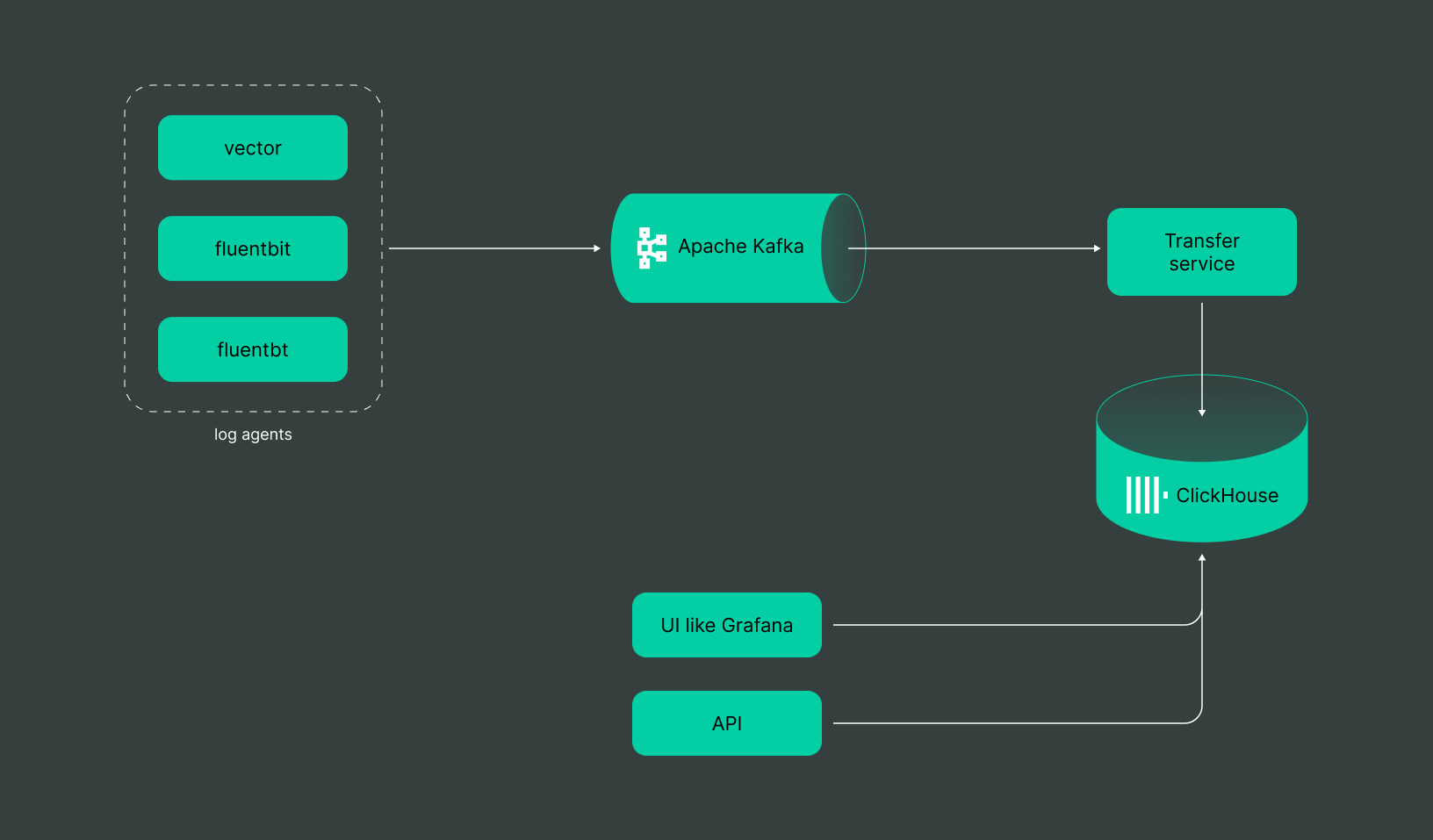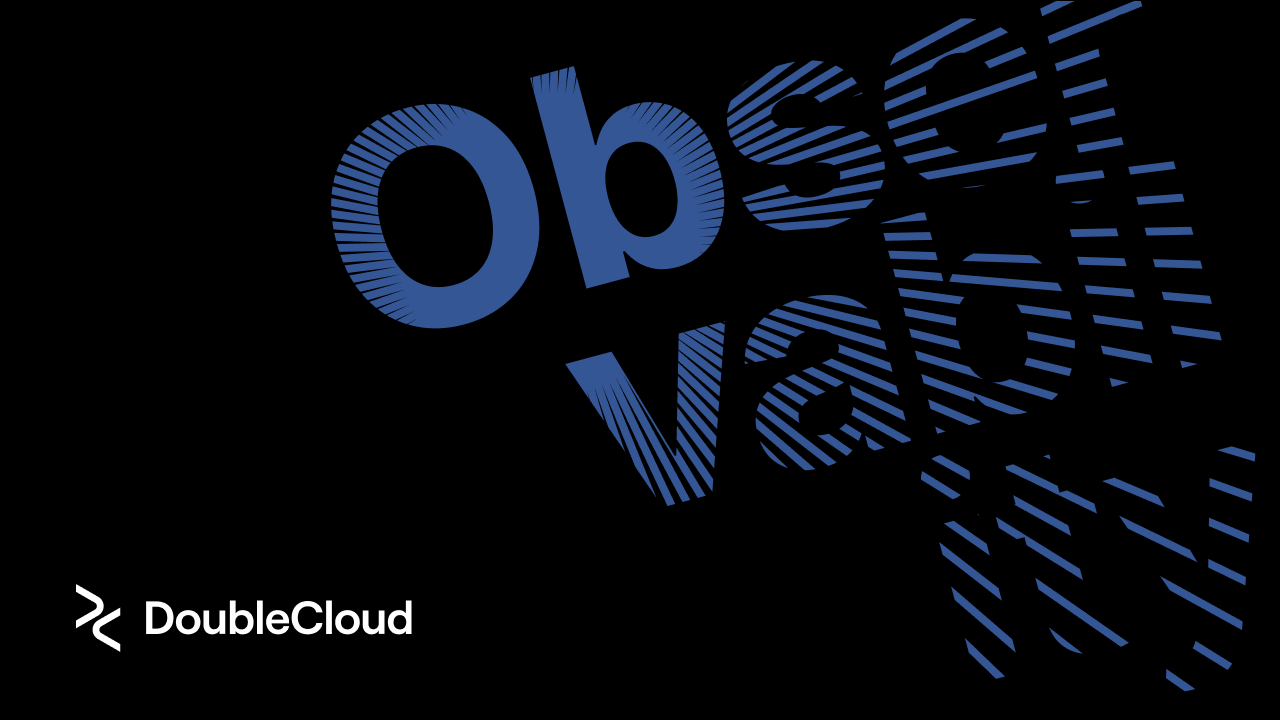Observability and monitoring solution
Observability platforms are essential for Data Engineers, SRE Engineers, and DevOps professionals who analyze logs, metrics, and application performance tracing. These platforms provide comprehensive insights into the behavior and health of applications and infrastructure.
By collecting and aggregating data from various sources, such as log files, telemetry, and distributed tracing, observability tools enable engineers to proactively detect issues, troubleshoot problems, and optimize performance. With real-time visibility into system components and their interdependencies, these professionals can ensure the reliability, availability, and performance of complex software systems.

Key challenges in building observability
High costs
Purchasing ready-made monitoring solutions can strain budgets, limiting the allocation of resources for implementation.
Vendor lock-in and limited functionality
Vendor solutions can be expensive and limited in functionality, resulting in vendor lock-in. This restricts organizations from adapting to their evolving needs and hampers innovation and the full potential of observability
Complex analysis and information extraction
With move to the cloud, microservices, and containers, the volume of data points to observe grows disproportionally. Analyzing and deriving meaningful insights from extensive logs, signals, and metrics poses challenges for real-time alerts and informed decision-making.
A large volume of logs with high update rates
Dealing with a significant increase of the volume of logs that update at a high frequency poses a challenge in terms of storage and processing.
Why choose DoubleCloud?
- Scalable and fast. More than 1 PB of uncompressed logs and 500K+ inserted spans per second.
- Low-cost. ClickHouse consumes up to 10x less hardware than competitors for these scenarios so the operational cost is approximately $40 for 1Tb logs.
- Cost-saving hybrid storage. Combining data retention techniques and ClickHouse’s analytics optimizes storage costs while enabling seamless access to historical data for analysis.
- Highly reliable. ClickHouse cluster continues to operate under a high query load without severe degradation or disruptions.
- Have connectors to Prometheus, Grafana, Zipkin, Jaeger, OpenTelemetry, Datadog, and others. Collect and visualize data by accessing the port and endpoint exposed by each cluster or node.

Why is ClickHouse the perfect choice for storing observability data?
Field-proven by reputable companies like Uber and eBay, ClickHouse has demonstrated its reliability as a trusted SQL-based observability store, capable of handling massive data ingestion at a scale of millions of records per second.

Enjoy benefits of our platform
Open-source technology
Use the original ClickHouse distributive wherever you like. No vendor lock-in.
Migration from Elasticsearch
We have a successful track record of transitioning clients from ES to ClickHouse, resulting in a significant cost reduction for their solutions.
Compliance and security
DoubleCloud is SOC2, ISO/IEC 27001:2013 certified provider and our solution ensures their most efficient backup, deployment, and scaling.
Free DoubleCloud Visualization with AI-Insights
Free DoubleCloud Visualization is perfectly suited for fast and efficient analysis of any data, including logs and metrics. And with the built-in ChatGPT-4, you can quickly obtain accurate and unbiased conclusions.
High availability and fault tolerance
Resizing and configuration without downtime, high availability configurations without a single point of failure.
Integration with ecosystem
Seamless integration with other components of the data ecosystem, such as Prometheus, Grafana, Zipkin, Jaeger, OpenTelemetry, Datadog, and other data ingestion tools, data warehouses, or data lakes, for comprehensive observability across the entire data pipeline.
Decrease the cost of your observability solution by building it in open source
-
Harness the power of open-source tools to lower costs significantly when constructing your observability solution.
-
Delve into the potential of hybrid storage solutions that allow for storing data over extended periods, even spanning years, while maintaining cost-effectiveness.
-
Uncover the benefits of the hybrid storage approach, which facilitates seamless retrieval of historical data from extensive data streams.
